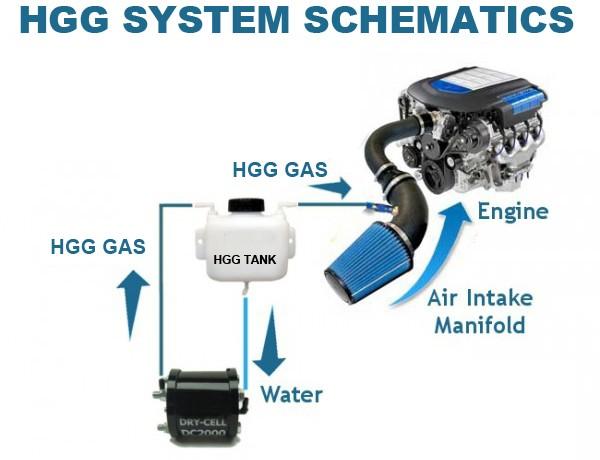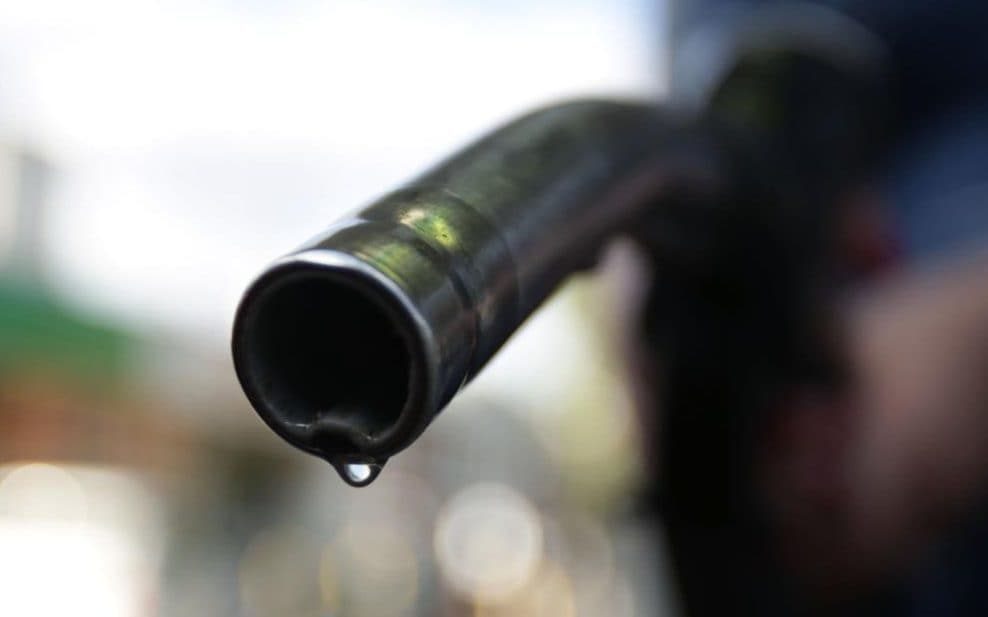15-35% Less consumption. Is that possible?
According to Stobbe Sales Activities and HGG systems that is possible. And certainly with older engines. And what's in our classics? Older engines so ...
With the supposedly most advanced and sustainable hydrogen technology generators for all gasoline and diesel engines for cars, trucks, boats and aggregates, that should be possible. By adding hydrogen (generated in the car itself) to the oxygen required for your engine, your car can run on a mixture of oxygen + hydrogen + gasoline or diesel. And that has to matter a lot.
Hydrogen as a panacea
This is also called Hydrogen Addition or Hydrogen on Demand. We already knew printing on demand from a small-scale book printing company, so why should this not work?
The fuel is mixed with hydrogen generated in your own car by electrolysis. Simply from demineralised water. And water is not yet expensive. You can even use the water from the tumble dryer for this. The hydrogen gas is simply supplied via the air from the intake manifold, where it is mixed with the fuel (Gasoline, Diesel, LPG). This mixture provides a complete combustion. As a result, fewer harmful substances are emitted and the engine gets more power. You can install this simple technology yourself without the help of a technician. But there are possibly built-in garages that can do this for you too
The claimed benefits
- Direct savings on your fuel consumption!
2. Increases the power and performance of your car. .
3. Reduces CO2 emissions.The engine receives a more complete combustion and therefore less pollutant emissions.
4. Decreases the temperature of the engine. Due to the reduced temperature of the engine, it will have a longer service life. (?)
5. Reduces carbon build-up and prevents carbon deposition.
6. Due to the effect of hydrogen combustion, the engine becomes quieter. This is due to better combustion of the gas mixture.
7. It increases the total life of your car.
And how do you keep such a system running?
For the case to work, only one liter of demi water has to be put into the reservoir every 1.000 km. But then gasoline engines from before 1992 talk about a fuel saving of 30-45%. And that sounds a bit like "If something seems too good to be true, then it is usually not true".
But we would like to be convinced to the contrary.
And then there is just another e-mail about the Fuelpod 2 with which you can make your own diesel from frying oil. 50 liters per day! We will soon be driving for almost nothing. But home-brewed diesel is subject to excise duty. Hydrogen not (yet).








Has anyone been so brave to test this system at all? It claims quite a bit and since the sellers themselves present little “evidence” from practice on their website, that is already strange.
Besides that it is theoretically not very well put together ...: /
Apart from whether you disrupt the gas mixture this way or not. It only costs more fuel:
The hydrogen (pay attention not to water, water vapor or steam!) From electrolysis uses energy, electrical energy in this case. On an industrial scale they achieve about 70% efficiency. Suppose we take a large 'drycell' (electrolysis device) of 10kW (that does not just fit in your car), if you put the 10 kW in that device, it will produce at most 7 kW. That 10kW must come sooner or later from the dynamo (ok you can recover during braking, but you could also have used that for your radio or lighting).
A dynamo is certainly not efficient: about 60% (in contrast to real generators that reach 96%). So the 16,6 kW of the engine (12 hp) leads to 7 kW of 'hydrogen gas'. The 7kW “profit” of hydrogen that we now have generates in the perfect scenario of a combustion engine about 30% of propulsion: 2,1kW profit but we had 16,6kW on the alternator:
16,6 - 2,1 = 14,5 kW (about 20 hp) loss (although we already dispute the 2,1 kW gain because you mess with the ideal air mixture)
The dry cell will probably only be 1kW or smaller, so a loss of 2 hp, no one misses that, the success is then in the mind. You can also deduce this from the 1 liter of water per 1000km they mention in the article. 1 liter of water gives about 4kWh of hydrogen energy: 1000km = 10 hours of driving = 0,4kW. So even if you could only use excess braking energy, there is no more than 1 hp gain.
Hoax based on the quest for the perpetuum mobile.
The hydrogen must be produced from electrolysis. And where does that energy come from?
From an 40% efficiency internal combustion engine that drives an 50% efficiency alternator certainly lol
Less CO2, yes better combustion therefore more NOx!
1 liters of water on 1000km delivers 15-35% less consumption?
1 liters in the DeLorean from back-to-the-future perhaps
Nice reactions all. I understand the approach chemically. But whether it works? Whether it works to that extent? The items can simply be delivered via the company mentioned. I have not yet had the courage to purchase a set.
Dolf Peeters / AMK
Dear people,
Unfortunately, you can see from the presentation that it is not yet completely clear to sellers, of these globally known and excellent working systems (if properly installed) (and this is the breakthrough
in the road.) The engine becomes quieter due to better combustion, so that the oil stays cleaner and lubricates better (quieter) and lasts much longer.
Who helps me to add from, to 100% to split h2o ?? !!
With complete ideal combustion of hydrocarbons, a lot of CO2 and less CO are produced. So that claim would rather earn a question mark than the claimed longer lifespan due to lower temperature. The LPG specialist can tell you everything about it.
Dangerous to mix air (oxygen) with hydrogen (fuel). It is better to mix the oxygen from the electrolysis with air and expose it to the fuel in the engine.
Is this already an operational system and what are the costs of such an installation?